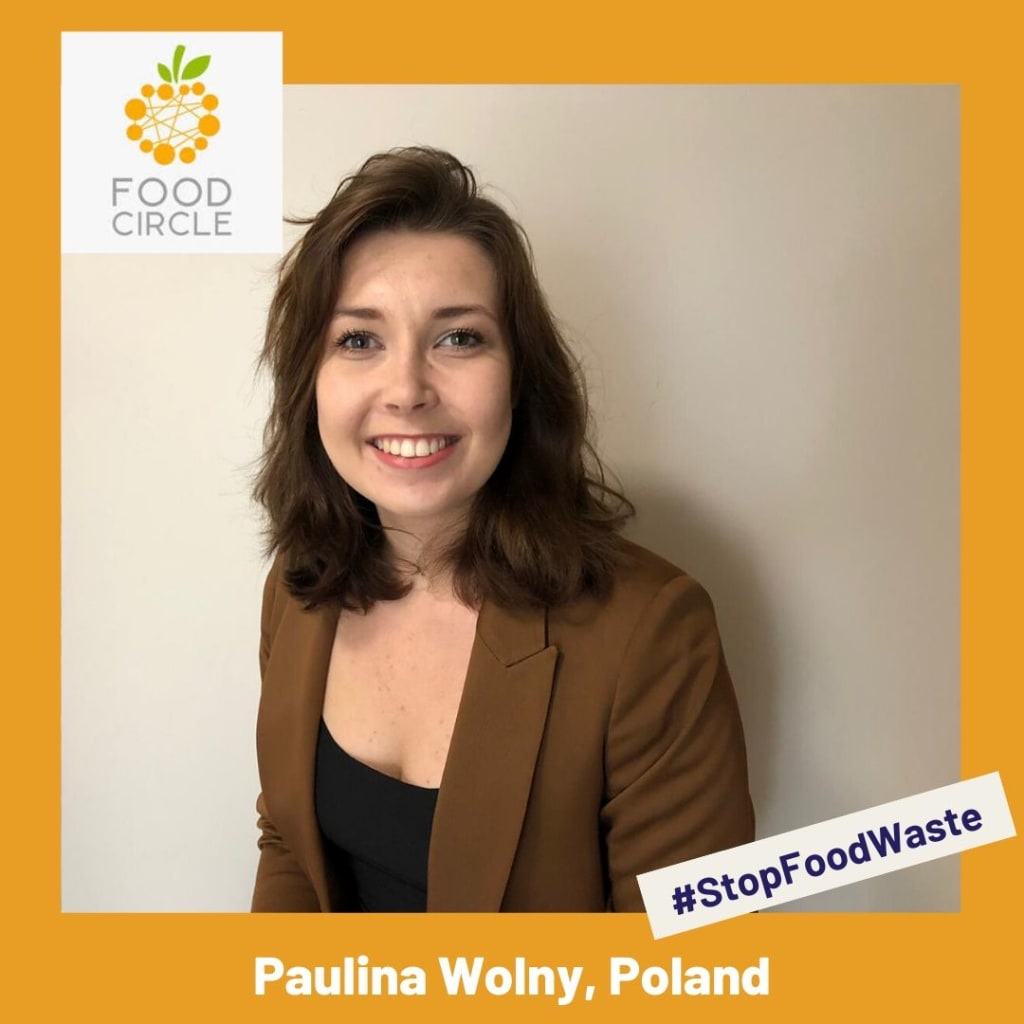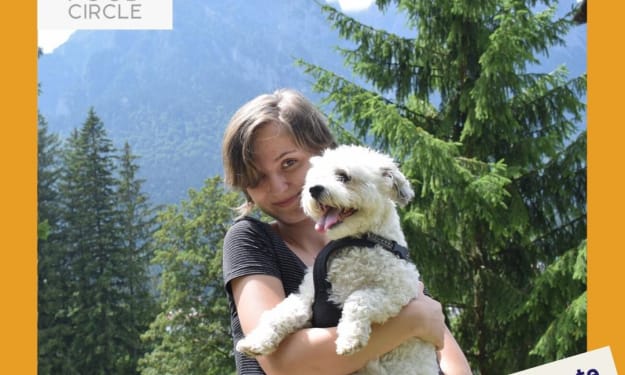Food Waste Around the World
Episode 2: Paulina from Poland

Hi Paulina, welcome to this interview and thank you for participating in the project Food Waste Around the world. To start, can you tell me where are you from and a little bit about yourself?
Hi, my name is Paulina Wolny and I am from Poland. I recently graduated from Nottingham Trent University and I'm doing an internship in Amsterdam in a sustainable organisation. I work in the Events and Funding departments. I focus mostly on creating events on the topic of sustainability. For example, I organised an art exhibition aimed at raising the awareness on sustainability by showcasing art created in a sustainable way or art representing the major current issues on the topic. I also take care of filing applications to possible funds and donors for our projects.
Interesting! And what is the food waste situation in Poland? Is it a big issue?
I guess Poland is not focusing that much on the food waste issue. However, we do have some organisations that try to reduce food waste, but currently not on a large scale. The main issue that we are facing right now, I guess, is extreme poverty. There are around 2 million people in Poland that live in extreme poverty. So, basically, the organisations that try to reduce food waste work as a connection between people in need and organisations that produce a food surplus. However, every year, approximately, a polish person creates 235 kilos of food waste. So, I guess there is not enough awareness about the topic of food waste.
Are there any specific differences in what you see in Poland compared to the Netherlands? According to food waste?
The thing is that I was working in a company focused on sustainability and food waste specifically. Hence, I experienced a high level of awareness on the topic so it’s difficult for me to tell how the issue is generally perceived in the Netherlands. In Poland, there are some digital platforms that offer the possibility of selling and buying food that otherwise would be wasted, such as Too good to go. However, the scale of those platforms in Poland is definitely smaller than in Amsterdam.
In Poland who is really driving the attention or raising the awareness on the food waste issue? Is it the government or are they NGO’s and small communities?
It is mostly the private sector that drives awareness of these issues and not the government. The government’s focus on environmental issues is scarce.
Are you aware of any of these initiatives to address food waste undertaken by the private sector in Poland?
There are some food banks and federations that are usually non-profit. They collect food from supermarkets and restaurants and their priority is to distribute it among those who are vulnerable and lack access to food. However, there are not many organisations that focus on food waste. The public awareness about the existence of different food waste organisations in Poland and the possibility of volunteering or working for them is very poor. You need to actively research to find out whether there are initiatives focusing on specific causes.
Since currently, the main driver behind this cause is mostly the private sector, do you think that in the future the government will eventually consider stepping in?
I hope so. When I look at my government I see that the Sustainable Development Goals haven’t been integrated as much into the policies and regulations. However, on a personal level, I am aware of the issues which come from having food waste in society but it can be a little difficult to start a conversation on this. What I feel should be important is that the Polish community needs to come together and tackle the larger socio-economic issues. There needs to be the importance of taking care of the welfare of the citizens, once when there is the progress made it will make it easier to tackle other issues regarding food waste.
What do you think could be the possible first steps to be taken by the different organisations? Do you think it needs to come from the community following a bottom-up approach or top-down from the government?
It should come from the top but I don’t think it will happen in Poland. For it to work, more organisations need to connect. Food Circle is a great example of an initiative that connects other food waste organisations. It would be great to have such an organisation here connecting all of the dots. Because, we need to work on a better world altogether after all, right?
Perfect. Okay, that would be it. Thank you very much.
Thank you.
Interviewer: Imaan Faruqui (https://www.linkedin.com/in/imaan-faruqui-034010ab/)
Interviewed: Paulina Wolny (https://www.linkedin.com/in/paulina-wolny123/)
Editor and writer: Imaan Faruqui
The organization mentioned in the interview:
https://bankizywnosci.pl/





Comments
There are no comments for this story
Be the first to respond and start the conversation.